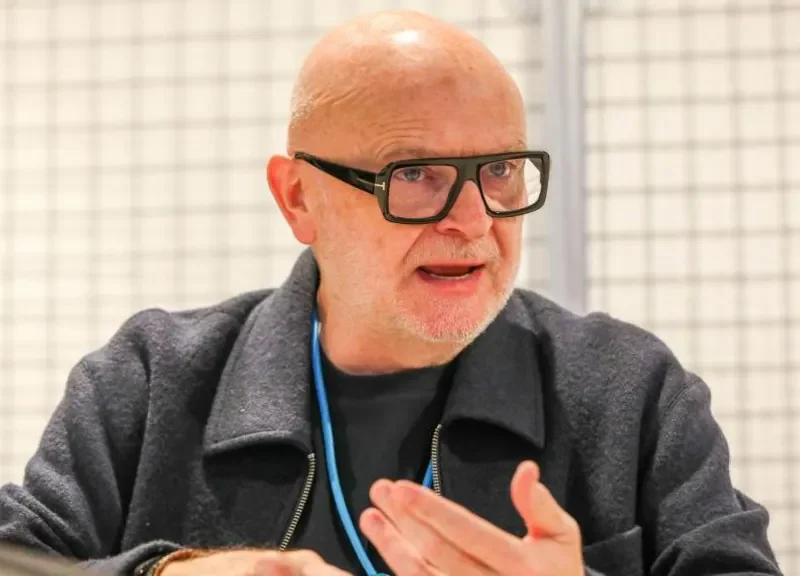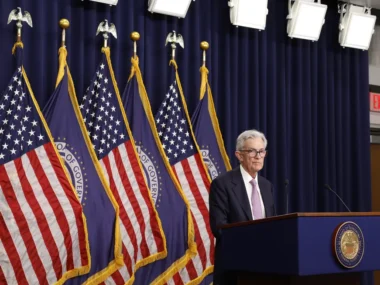Primark CEO Paul Marchant has stepped down following a complaint from a woman regarding his conduct in a social setting.
Parent company Associated British Foods (ABF) stated that an external legal investigation led Mr. Marchant to acknowledge poor judgment and accept that his actions did not meet the company’s standards.
ABF confirmed that Mr. Marchant cooperated with the inquiry and apologized to the individual involved.
Additionally, the company revealed that he had previously been involved in an incident concerning “inappropriate communication,” which had been investigated earlier, with appropriate action taken at the time.
ABF declined to share further details, including whether the cases involved colleagues or external individuals, citing privacy concerns.
“Deeply disheartened.”
Paul Marchant took over as Primark’s CEO in 2009, succeeding founder Arthur Ryan.
Announcing his resignation, ABF CEO George Weston expressed deep disappointment, emphasizing that all individuals must be treated with respect. He stated that the company’s culture is larger than any single person and reaffirmed ABF’s commitment to integrity and responsible business practices.
ABF confirmed that it remains in contact with the individual who raised concerns and has offered support.
Primark, known as Penneys in Ireland, was founded in 1969 by Arthur Ryan. Under Marchant’s leadership, the brand accelerated its international expansion, attracting younger, budget-conscious shoppers with low-cost, trend-driven fashion. However, retail analyst Catherine Shuttleworth notes its widespread appeal extends beyond just younger consumers.
She highlighted that Primark’s accessibility to affordable clothing coincided with shifts in global supply chains, making materials and products more readily available.
Before joining Primark, Marchant held roles at Debenhams, Topman, and New Look. Like his predecessor, he maintained a low public profile.
Shuttleworth noted that Primark’s leadership prefers to remain behind the scenes, allowing stores and products to represent the brand.
Unlike competitors, Primark long resisted e-commerce, only introducing a click-and-collect option in 2022 after the pandemic accelerated online shopping trends.
As with other budget fashion retailers, Primark has faced criticism for contributing to the rise of disposable fashion.

Paul Marchant discussed enhancing the longevity of Primark’s clothing with the BBC’s Emma Simpson in 2022.
In a rare 2022 interview with the BBC, Mr. Marchant stated, “We have put in significant effort and remain committed to enhancing the quality and durability of our clothing.
“Our goal is not for customers to purchase items only to discard them. Instead, we want them to buy, cherish, keep, and even pass them on to friends.”
‘Unsettling’
Primark plays a significant role within the ABF group, contributing nearly half of its £20 billion in total sales.
However, in its latest trading update covering the Christmas period, the retailer reported a decline in sales across the UK and Ireland, which generate 45% of its revenue.
Following this announcement, ABF’s share price dropped nearly 4% to £18.64.
Susannah Streeter, head of money and markets at Hargreaves Lansdown, noted that Mr. Marchant’s departure comes at a challenging time for Primark.
“The leadership change will be unsettling, especially as Primark’s recent results have been mixed,” she said.
She added that weaker consumer sentiment has reduced footfall, leading to a loss of market share in the UK. While international performance has been strong, she warned that leadership changes could bring uncertainty to the pace of expansion.
With Mr. Marchant stepping down immediately, ABF’s finance director, Eoin Tonge, will take over as Primark’s interim chief executive, while financial controller Joana Edwards will assume his role. The company stated that both executives are well-equipped for these positions.
ABF remains majority-owned by the billionaire Weston family, who previously owned Selfridges until 2021.











